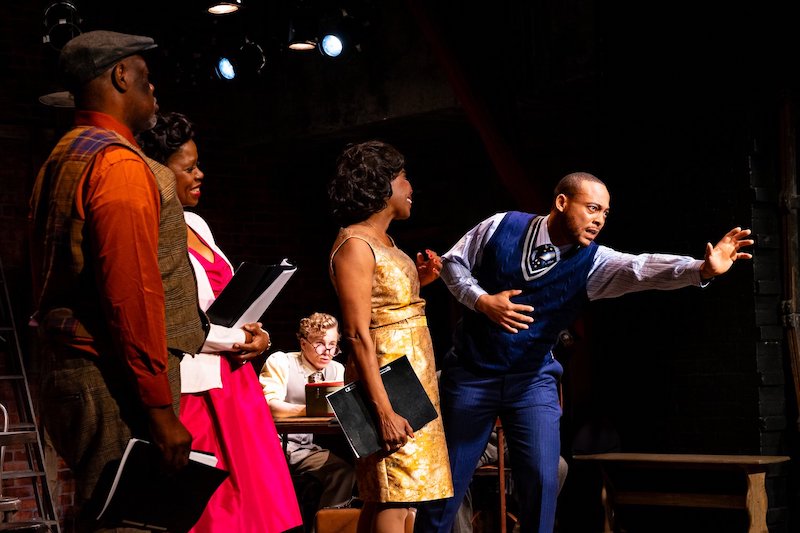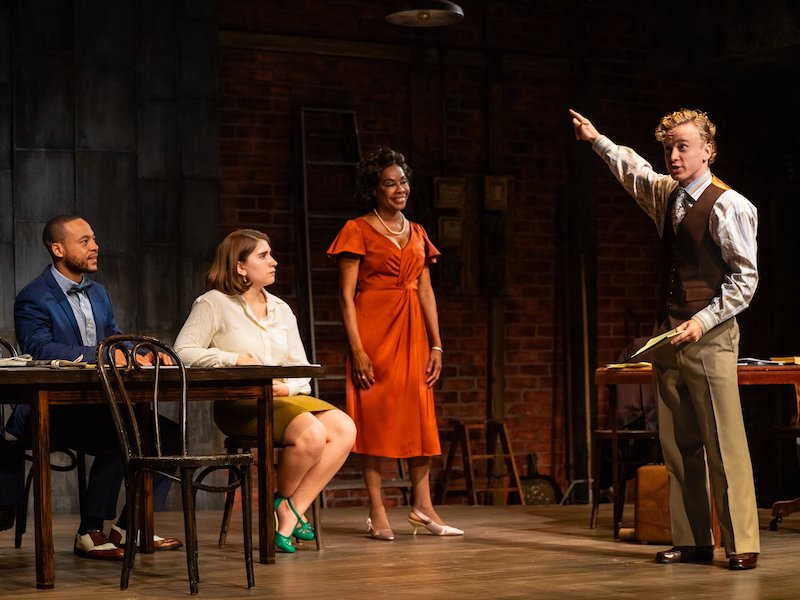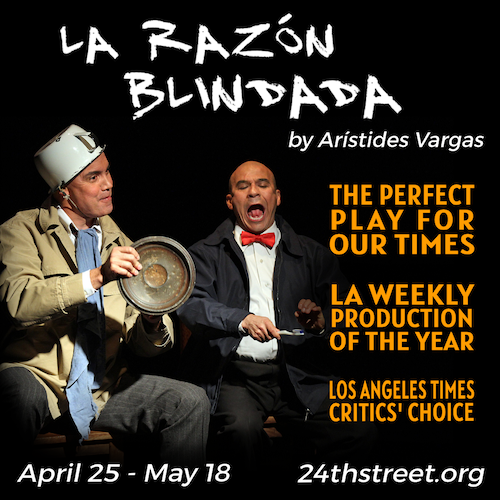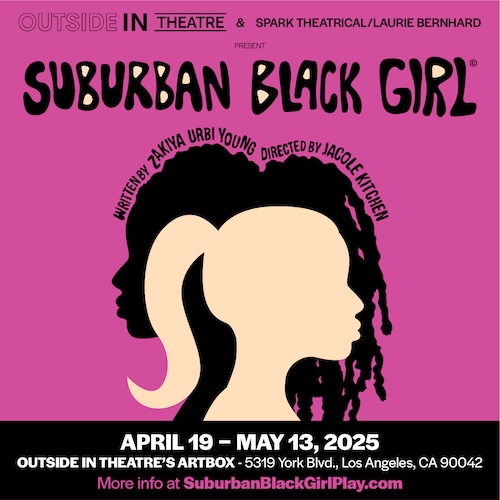
Freedom, Sophia Kalugin, Kimi Walker, Brenden Shannon (Photo by Kamal Bolden)
The Arc of Justice
Reflections on Alice Childress’s Play About Race, and the Theater
By Thatiana Smith
This article is part of the Stage Raw/Unusual Suspects Youth Journalism Program
Every four years, at the beginning of November, the nation is divided. Every American sits in their living room, eyes glued to their television as numbers are tallied and the next president is announced. Some are outraged, while others are hopeful for the next four years.
Trouble in Mind, written by Alice Childress, premiered in New York in 1955. A revival last month, directed by Kimberly Hébert Gregory, has haunted me ever since I stepped out of Actors’ Co-op in Hollywood. Trouble in Mind follows the story of a 1950s African American actress, Wiletta Mayer (Kimi Walker), who wants more than anything to be known as more than just a singer. She craves inclusion and the knowledge that she’s doing something positive for her community rather than portraying another mammy on stage, but yet another White director (Spencer Rowe) has let her down.
The theme of Black vs. White is still very prevalent. With Vice President Kamala Harris running against Donald Trump, we saw the influx of racist, misogynistic, homophobic, xenophobic, and transphobic rhetoric being spread online. During Harris’s ill-fated campaign, in a town outside of Pittsburg, Harris was depicted as being chained up to “a utility vehicle decorated with American flags and campaign signs for former President Donald Trump and people dressed as United States Secret Service agents with what appears to be a rifle mounted on top.” (This, according to Tory Wegerski, of CBS News.)
My ancestors fought tooth and nail for the rights I have today. Those same rights are being threatened.
Chaos in Belleville, the play-within-the-play that a mixed-race ensemble is rehearsing on Broadway, explores the subject of voting while Black. Another African American actor, John Nevins (Freedom), is just as eager as Wiletta to be on Broadway. His character in Chaos in Belleville is very rebellious and gets into trouble when he exercises his right to vote. Exercising one’s right to vote becomes a challenge when you are born with a little more melanin. Last month, we saw ballot boxes being burned and tampered with, while thousands of vote-by-mail ballots were delayed and lost, leaving thousands of Americans with their votes untallied. The threat of change by democratic means can cause others to feel uncomfortable, but instead of learning to “love thy neighbor,” so many people choose to remain ignorant and aggrieved.
I was excited to turn 18. Not because I could finally apply to the Funko Pop store or go certain places without my parents, but because I could finally exercise my right to vote. Little did I know that the first election I voted in would be the most important in our nation’s history. As a Black woman living in Southern California, I have grown up around racism. From simple microaggressions to words of hate speech being thrown around as if it were a “cool new slang term.” I felt as if I was desensitized to it. Still, as I see someone who is supposed to represent America and its citizens stoop to using and encouraging hate speech against women and minorities, I feel as if this country is on the brink of something dangerous. I do not want to live in a world where women have fewer rights than their grandmothers and great-grandmothers had.

Rodrick Jean-Charles, Lorinda Hawkins Smith, Brenden Shannon, Kimi Walker, Freedom (Photo by Kamal Bolden)
One thing I loved about Trouble in Mind was that it never made Wiletta into the stereotype of an “angry black woman.” It showed that she was passionate about making sure that her community was being portrayed in a positive light. She stood up for what she knew was right, which is admirable considering the time it takes place. Although fiction, this play has so much historical accuracy and context. The characters are so complex that one can see themselves reflected in each and every character on stage. Childress was a fantastic writer who possessed the ability to get people to sympathize with all of her characters, Black and White. I sympathized because the women on that stage are based on women with dreams; they dreamt of the freedom of self-expression, the freedom to shop in the same grocery store as their White peers, the freedom to sit in the same movie theaters as their fellow citizens, and the freedom to vote without fear of prosecution.
My “I voted” sticker sits on my wall, staring at me. The red, white, and blue ink represent something much more than the flag’s colors: they represent the blood, sweat, and tears my people have shed to give me the luxury to vote without fear.
Will that day ever come?
This production has closed.














